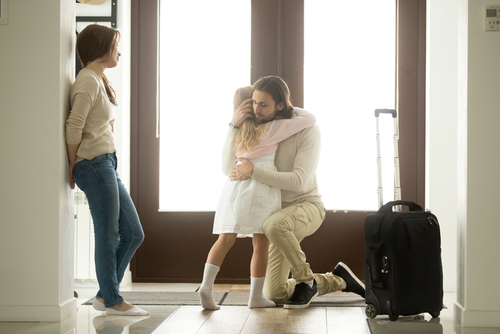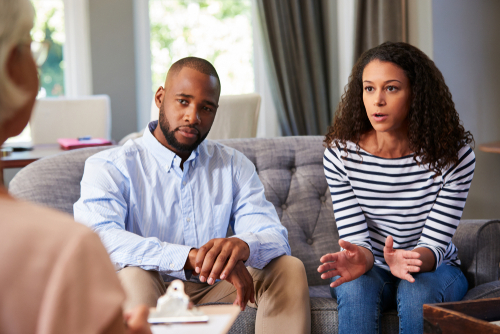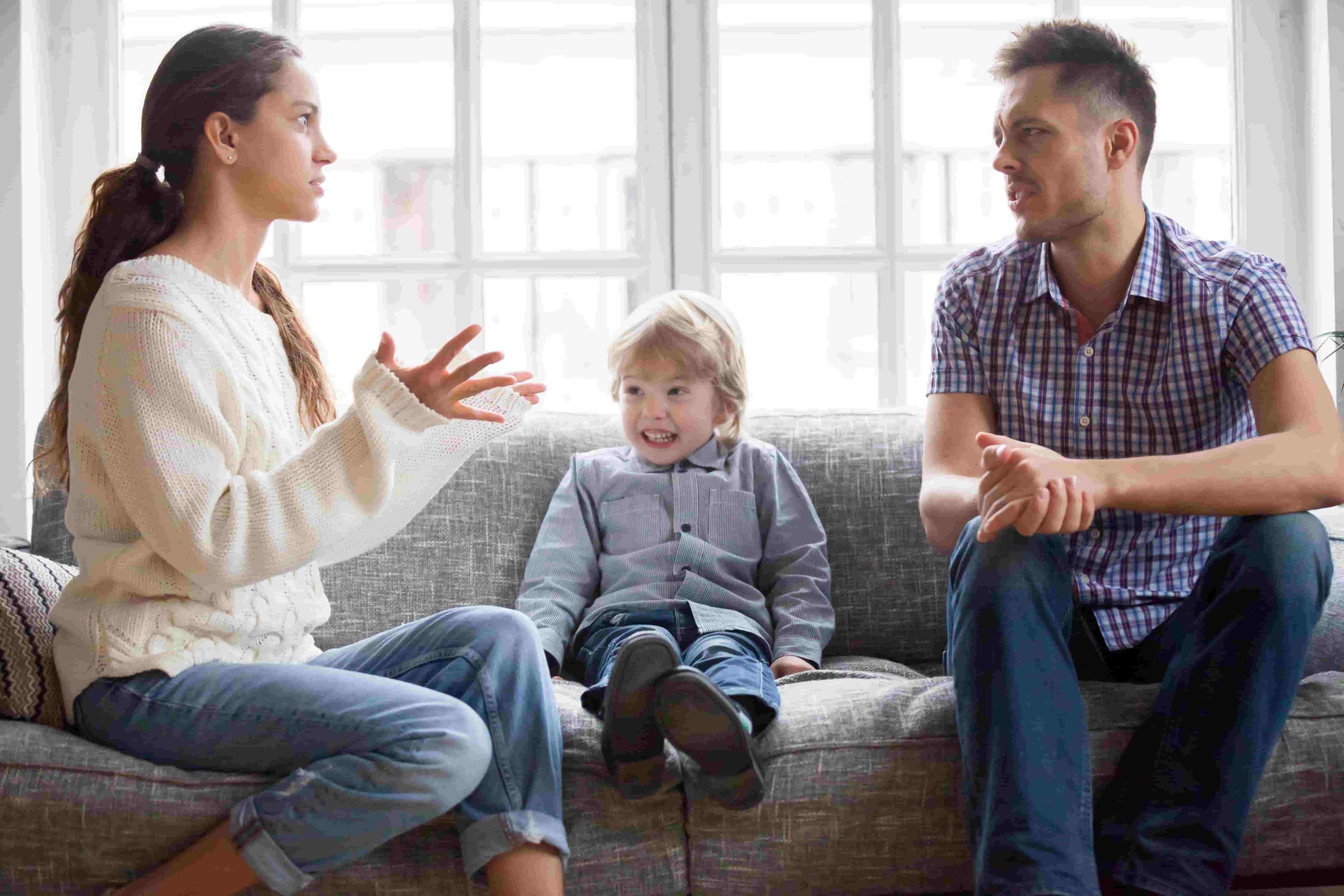Your attachment style is formed at an early age and it’s mostly shaped by your parents and your relationship with them. Love, annoyance, compassion, avoidance, dedication, care, neglect, and anything in between contributes significantly to the substance of the attachments you form with others, your romantic partners included.
For example, your common attachment style might be what’s causing you to develop a codependent relationship with your partner, leaving you to explore places that offer codependency recovery coaching after your relationship ends. However, what about attachment styles and divorce, does marriage dissolution affect them and how? You can find that out here.
What Are The Different Attachment Styles?
The theory of attachment styles was established by John Bowlby during the 1950s and further developed by Mary Ainsworth. This theory serves to outline the four different types of bonds you form with your primary caregivers which serve to impact your relationships and the way you navigate through them throughout your life. Based on the postulates of attachment theory, there are four styles of attachment:
Secure
Secure attachment stems from an individual feeling secure in the relationship with primary caregivers during childhood and having the ability to openly ask for validation and reassurance without fearing punishment. You experienced value, comfort, understanding, and safety when growing up and your caregivers were emotionally available. Some of the most common signs that describe secure attachment style are:
- Emotional availability
- High confidence and self-esteem
- Positive conflict management skills
- Easy connections
- Self-reflection in relationships
- Comfort in relationships and during times of solitude
- Ability to provide and seek emotional support
- Proper communication skills
- Trust in others
- Ability to regulate emotions
Avoidant
Anxious-avoidant and dismissive-avoidant are terms used to describe the same insecure style of attachment. Primarily, this style forms due to either absent or emotionally distant caregivers who exhibited certain patterns of behavior, such as:
- Leaving you to fend for yourself
- Expecting independence from a very early age
- Reprimanding any form of dependence on them
- Rejecting your expressions of emotions and needs
If you’ve experienced similar behavior from your caregivers, you can exhibit the following signs of avoidant attachment in your relationships:
- Avoiding physical or emotional intimacy
- Feeling extremely strong independence
- Discomfort when expressing feelings
- Dismissive behavior toward others
- Not trusting people easily
- Feeling threatened when a person tries to get close
- No need for others in your life
Anxious
Other names for the anxious style of attachment are anxious-preoccupied and anxious-ambivalent. Its characteristics are fear of abandonment, rejection, and dependence on your partner for emotional regulation and validation. It mostly stems from parenting that is inconsistent with the needs of the child. Individuals who develop anxious attachment styles have often experienced a lack of understanding when it comes to the actions of their caregivers and inability to know what to expect from them.
Some of the characteristics of such caregivers are attentiveness before pushing you away for no reason, feeling of being overwhelmed with parenting and your needs, as well as alternation between indifference, detachment, and excessive coddling. The most frequent signs spotted in individuals with an anxious attachment are:
- Difficulty placing trust in others
- Fear of abandonment
- Fear of rejection
- Fear of being unworthy of love
- Low confidence
- Jealousy
- Need for approval
- Sensitivity to criticism
- Clinginess
Ambivalent (Disorganized)
Some of the most frequent reasons behind disorganized style of attachment are abuse, neglect, and different forms of childhood traumas combined with the presence of fear from their primary caregivers. Individuals with the disorganized attachment are confused by their feelings and the feelings of others, leading to the development of several signs:
- Signs of anxious and avoidant attachment styles
- Difficulty placing trust in others
- Heightened anxiety
- Contradictory behavior
- Inability to emotionally regulate
- Fear of abandonment and rejection

Which Attachment Style Is Most Likely To Divorce?
It’s difficult and almost impossible to state one style of attachment and deem it most likely to go through a divorce, because such things aren’t universal. Relationships are unique and individuals within them are unique. Slapping the “most likely to divorce” sticker would be unprofessional and would target specific groups of individuals.
There are some signs that point to the fact that avoidant and anxious attachment styles attract one another and that they form a rocky basis for a stable marriage due to the innate incompatibilities of these two types of attachment.
However, drawing conclusions from such matters isn’t advisable and would be unfair toward such individuals. The truth of this matter is that we all are unique, and so are our relationships, and to mark any one marriage as more likely to fail isn’t something we’d ever want to do.
Can Divorce Cause Attachment Issues?
Yes, experiencing a divorce can affect your attachment style and cause issues in any one of the four forms of attachment. Even individuals who are certain of themselves and fall into the secure attachment categories can develop difficulties with trusting others, become emotionally unavailable, at least for a time, suffer from low self-esteem, experience discomfort in future relationships, and become less able to adequately regulate their emotions.
When it comes to other attachment styles, individuals can experience aggravating of their underlying traits, making them potentially less prone to physical and emotional intimacy, expressing emotions, forging trust with others, and much more.

PIVOT Will Help You Cope With Your Attachments With Expert Codependency Recovery Coaching
Divorce can alter your attachment style for the sheer trauma of you having to go through it all. However, there’s also a lot more a divorce can do. For example, post-divorce depression is a common occurrence even if you’re the one who decided to walk away from your marriage because of concrete reasons.
Even if your divorce is healthy and you and your former husband remain on good terms, it can still be extremely difficult to move on after your divorce. The mere fact of you having to pick up the pieces after spending a number of years with one person and in one home is often too much for any individual to handle.
That’s why you need to turn to the experts at PIVOT. Our advocates foster a caring approach when holding individual coaching sessions designed to help you come to terms with your divorce and learn how to continue your life. What’s more, our Glass House retreat can serve as a place where you find your new beginning. We’re here to help you.



















